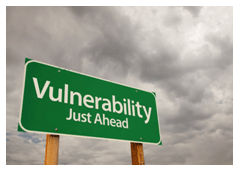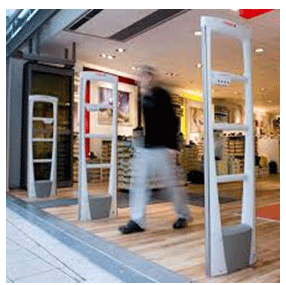 From Miami, Florida to Seattle Washington, police departments across the nation plan to increase police patrols and police officers around shopping malls, downtown, and most frequented shopping areas around their cities to ensure people feel safe when they come out to shop for the holidays. Another reason is also to ensure shoplifters know police officers are present and that their criminal activity will not go unpunished. Shoplifting during the holidays increases, and retailers and police departments try to mitigate it by implementing shoplifting measures that can help them keep shoplifting to a minimum.
From Miami, Florida to Seattle Washington, police departments across the nation plan to increase police patrols and police officers around shopping malls, downtown, and most frequented shopping areas around their cities to ensure people feel safe when they come out to shop for the holidays. Another reason is also to ensure shoplifters know police officers are present and that their criminal activity will not go unpunished. Shoplifting during the holidays increases, and retailers and police departments try to mitigate it by implementing shoplifting measures that can help them keep shoplifting to a minimum.
For this and other topics, follow the links below.
How does Walmart’s latest anti-theft program work?
Walmart is taking a different approach to shoplifters.
The world’s biggest retailer is using the Restorative Justice Program to help reduce theft and police calls in their stores.
Walmart is often a hotspot for crime, according to an August Bloomberg report.
It’s not only petty crimes that plague Walmart stores all across the country, more than 200 violent crimes- including murders, attempted kidnappings and shootings- have happened in the nation’s 4,500 Walmart stores this year, according to the report.
While the Restorative Justice Program aims to cut down on shoplifting specifically, less petty crime often means less violent crime.
Restorative justice by definition, is a system of criminal justice that focuses on the rehabilitation of offenders through reconciliation with victims and the community.
Walmart aims to do just that.
“The program offers first time low risk offenders a second chance in order to make things right by participating in an educational course in lieu of prosecution.” said Delia Garcia, Director of Communications at Walmart.
The program launched in 2014 and is currently in effect in about a third of all Walmart stores, including in the Sacramento market, according to Garcia.
No retailer is immune to shoplifting
If you pay attention to court news, you know there’s a problem with serial shoplifters.
Many individuals are convicted of shoplifting three times or more. Sometimes, they try to steal from the same store.
In Grand Island, the majority of shoplifting violations reported this year have been at department or discount stores. That category is followed by grocery stores/supermarkets and then by convenience stores.
Businesses point out that theft translates into higher costs for customers.
A sign at Super Saver, for instance, says “To keep prices low we have installed an electronic inventory system.”
The number of thefts is probably proportional to the number of shoppers a store attracts, notes Capt. Jim Duering of the Grand Island Police Department. In other words, the greater the foot traffic, the bigger the number of shoplifters.
A Walmart spokeswoman points out that a company with multiple locations in a city will be victimized more than a single entity.
Walmart uses a multi-pronged approach to make sure the store is meeting “our customers and our associates’ expectations for a safe and enjoyable shopping experience,” says Delia Garcia.
Having a safe environment “begins with a very positive relationship with law enforcement,” Garcia said.
Mt. Juliet police increase patrols in shopping areas
Starting this week, Mt. Juliet police will increase patrols in Mt. Juliet’s retail areas for this year’s holiday shopping season.
On Thanksgiving afternoon, Black Friday and throughout the shopping season, more police officers will be concentrated near the primary shopping areas by Interstate-40, according to a release from the Mt. Juliet Police Department.
“The ultimate goal is to deter and prevent criminal activity,” Chief James Hambrick said. “We simply want Mt. Juliet’s shoppers to have a great experience at our area shopping destinations. Residents and visitors will see an increased police presence, and there will also be undercover officers that will not be easily noticed.”
 The holiday season is officially under way and your stress level is about to go into overload. When we’re overly stressed bad things happen to us mentally, emotionally and physically: headaches, digestive issues, eating too much, concentration problems, decreased impulse control, increased emotional sensitivity, poor planning ability and sleep disturbances.
The holiday season is officially under way and your stress level is about to go into overload. When we’re overly stressed bad things happen to us mentally, emotionally and physically: headaches, digestive issues, eating too much, concentration problems, decreased impulse control, increased emotional sensitivity, poor planning ability and sleep disturbances.

 Step back and take a hard look. Or better yet ask someone you trust to do that. A friend, another business owner…… they really do not need to have any special skills. You should look at your store from the prospective of the shoplifter. If you were going to steal, how would you do it? Do you have dark areas, high shelving, hidden spots that would make the thief comfortable? Is your store unkempt, dirty and not stocked in an organized way? Shoplifters are attracted to these environments. If you are presenting that look, then the shoplifter probably knows you are not able to keep up or simply do not care. This will also breed more shoplifting as word gets around that YOUR STORE is an easy mark.
Step back and take a hard look. Or better yet ask someone you trust to do that. A friend, another business owner…… they really do not need to have any special skills. You should look at your store from the prospective of the shoplifter. If you were going to steal, how would you do it? Do you have dark areas, high shelving, hidden spots that would make the thief comfortable? Is your store unkempt, dirty and not stocked in an organized way? Shoplifters are attracted to these environments. If you are presenting that look, then the shoplifter probably knows you are not able to keep up or simply do not care. This will also breed more shoplifting as word gets around that YOUR STORE is an easy mark.
 Are they asleep at the switch? Do they care? Have you trained them how you want the shoplifting deterrence program in your store to work and what their roll in it is? This is not something you can put off. It’s like saving money in an account. You got to start. If you are one of Loss Prevention Systems Customers already, then you know this. That is why we conduct live, personalized shoplifting prevention and loss prevention training for our customers.
Are they asleep at the switch? Do they care? Have you trained them how you want the shoplifting deterrence program in your store to work and what their roll in it is? This is not something you can put off. It’s like saving money in an account. You got to start. If you are one of Loss Prevention Systems Customers already, then you know this. That is why we conduct live, personalized shoplifting prevention and loss prevention training for our customers.  This is the best time for retailers. We make a good chunk of our profits during the last 3 months of our fiscal year. Walk into any major retailer right now and you’ll already see a litany of holiday themed gifts, home décor and all things red and green. We also tend to beef up our staff this time of year as well. Some of us hire part-time works, some may even add a full-time position or two and a great many of us will employ temporary workers. The threat of employee theft also peaks around this time as well.
This is the best time for retailers. We make a good chunk of our profits during the last 3 months of our fiscal year. Walk into any major retailer right now and you’ll already see a litany of holiday themed gifts, home décor and all things red and green. We also tend to beef up our staff this time of year as well. Some of us hire part-time works, some may even add a full-time position or two and a great many of us will employ temporary workers. The threat of employee theft also peaks around this time as well.  As I sit here on this Halloween night, thinking about how great it was when I was a kid to pillage the neighborhoods for candy and treats, I can’t help but also think about the next 60 days. The real fright comes now for all of us in the retail game. We’ve got so little time to do so very much. We all have new receipts pouring in, plan-o-grams that need setting, bulk stacks that need stacking and bins that need filling; all with the mad hopes of grabbing every possible dollar from now until December 24. A big part of that plan, for most, is hiring temporary help to get us through. Have you ever thought about how these temporary workers can impact your LP goals? With a little training and guidance, they can be one of your greatest holiday assets.
As I sit here on this Halloween night, thinking about how great it was when I was a kid to pillage the neighborhoods for candy and treats, I can’t help but also think about the next 60 days. The real fright comes now for all of us in the retail game. We’ve got so little time to do so very much. We all have new receipts pouring in, plan-o-grams that need setting, bulk stacks that need stacking and bins that need filling; all with the mad hopes of grabbing every possible dollar from now until December 24. A big part of that plan, for most, is hiring temporary help to get us through. Have you ever thought about how these temporary workers can impact your LP goals? With a little training and guidance, they can be one of your greatest holiday assets. Ever given any thought to your receiving area and your back door? How often do you open it and walk away? Do you require a manager be present when it’s open, or do you “trust” your warehouse crew with a key? Have you ever considered that an unattended back door could not only cause shrink, but also compromise the safety of your customer and employees? If you answered yes to any of those questions, you may have a problem.
Ever given any thought to your receiving area and your back door? How often do you open it and walk away? Do you require a manager be present when it’s open, or do you “trust” your warehouse crew with a key? Have you ever considered that an unattended back door could not only cause shrink, but also compromise the safety of your customer and employees? If you answered yes to any of those questions, you may have a problem. It is not surprising that CVS is once again the recipient of a lawsuit.
It is not surprising that CVS is once again the recipient of a lawsuit.
